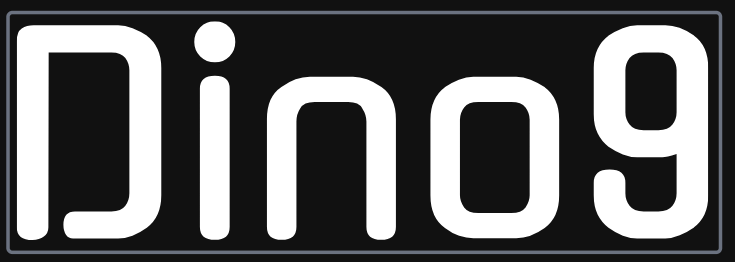If you’re in the tech skill industry, you’ve probably been told that you need to be smart. Mattias Andersson shares his step-by-step process for choosing the next step in progress.
The technology landscape is changing and you want to make sure it doesn’t happen again in the future. Maybe ChatGPT and productive AI have you worried about your job security, or maybe you just want to stay one step ahead.
But the real question is: Where do you start?
Knowing where to go can be a huge source of stress. To misquote Douglas Adams: “The number of digital skills you can learn is overwhelming.” It’s really big. – Worse, it’s always changing; In 2021 you will know what the most important skill is, but in the next three years the situation will be completely different.
What happened? Judicial paralysis. Answer Google searches and Reddit for questions like:
- What is the best tech skill to learn this year?
- What are the tools and skills I should use during my studies?
- What is the golden skill that can make me a lot of money?
Of course, this keeps you busy with conflict and information as you try to find the “right” and “perfect” choice. All this will take a lot of time and in the end you will not get a good answer.
If you are not alone. While 74% of tech skill professionals have some time per week to learn new tech skills, nearly a third struggle to figure out what to learn, according to Pluralsight’s 2024 State of Skills Development Report.
Technical Barriers to Upskilling As you can see, this is the second biggest barrier to upskilling (besides the completion time we commit to). Therefore, it is important to take the time to determine which is more serious to examine.
So I’m telling you there’s a better way in tech skill?
1. Start learning new things. What!
Very good. Pick something and start learning. You can choose the one you want or choose a different one (flip a coin, roll the dice, close your eyes and choose from the list).
Why? In fact, learning something is more important than not learning at all. If you are learning something, you are improving and you will be better than you were yesterday. You won’t get stuck and you won’t back down.
If you are someone who does not like unconventional methods, this idea may not interest you. You might say: “But I don’t want to waste my time researching unnecessary things.” But this is the second thing to play.
2. After thirty minutes, ask yourself some questions
Did you like this process? Interested in what you learned? Does it seem like what you’ve learned might be useful over time? Do you think you benefited from the training in general?
If you are getting results, you are on the right track! But if not, try something new; a new topic, a different medium, or perhaps a completely different subject. Use what you learn from your experience to make it better next time! Just because something is considered the “best” skill in tech skill this year doesn’t mean it’s yours! For example, you may find that you don’t like machine learning but are interested in cybersecurity.
By repeating this, you can find better ways to spend your time. This is more beneficial than spending too much time searching and finding the “right” learning content and quickly finding out it isn’t for you.
3. Plan your next step based on what works
When you find something you like and think it would be a good use of your time to continue learning new tech skill, you can see how it affects you. Lets you know if these links are interesting or useful.
Again, ask yourself some questions: What jobs in the tech industry currently use these skills? Are these roles interesting to you? What else did you learn about the first thing you learned? Can you start with this skill set and continue your education in other areas to gain enough skills to get into this job?
All these guide you. What may seem like a random path is a way to give you the information you need to move yourself forward in a way that suits your interests and preferences; Not everyone says you should do this.
4. If you don’t like the random approach, use job postings.
A better way to help you narrow down your study options than rolling the dice is to identify jobs in your area. Choose ten and choose the one that sounds loudest; something you think you want to do. Check out the list of technologies and skills required for the job and choose one you don’t know.
Take some time to review this (again, maybe just thirty minutes), then move on to step 2, ditto. Do this until you find the one you like best. You may go through this process and think, “Oh, this job isn’t as interesting as I thought,” or vice versa. You’ll also start to learn all the little skills you need to be successful at work and understand how the business works.
This also applies to internal job postings such as promotions. You can look at the role you currently have, especially if you have a colleague in a similar position to yours and is doing that job. What skills and knowledge do they have that you don’t?
This is an important test because you will be doing unnecessary work for your business! Closing these gaps first is a great way to secure your job and give yourself another promotion.
5. If you’re worried you won’t be able to do it, make it a priority.
Everyone encounters a little thing at work that they know they can do better, or a new tool or tech skill that they think is a little daunting. In fact, a new study shows that the majority of tech skills professionals have no confidence in their basic tech skills. So even in my most expert and experienced place in tech skill, I don’t believe in myself because everything is moving so fast and I have to fight to be successful! I always have to double check what I’m doing based on the latest developments.
If this describes you too, then use this negative feeling to your advantage. Tackle this topic first and make learning about technology your first priority, no matter what it is you love most. > Only experts in this field.”
Remember, this also applies to skills! If you’re good with technology but struggle with communication or collaboration, there are courses and resources that can help. I recommend checking out this section: “Do You Work in Technology?” The Best Soft Skills to Develop in 2024. – These tech skills are equally important (sometimes even more important) for your job security.
Keep it up and hold on – Technology Inflation –
You can think of technology as inflation, the knowledge you need to keep slowly increasing over time (Same as the cost of living!). Developing skills is one way to fight inflation. So the question becomes, “Am I learning enough to handle money?” That’s why it’s important to learn new things and find better investments.
Remember, no matter what you choose, the only wrong choice is choosing not to learn anything. Take thirty minutes and make yourself better than you were yesterday!














